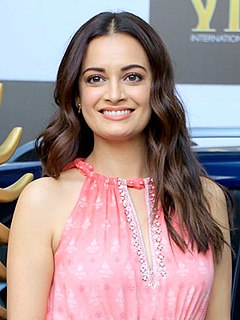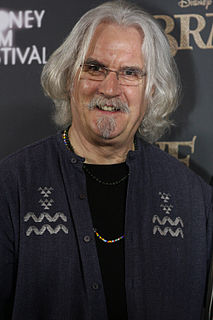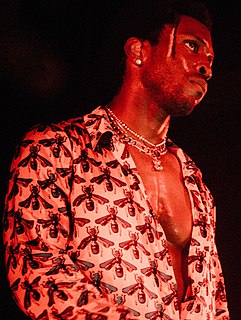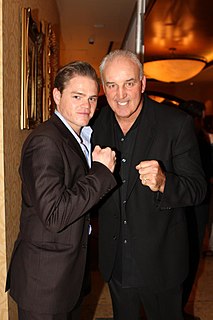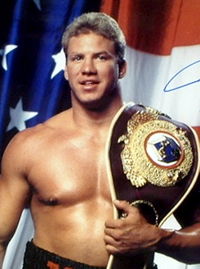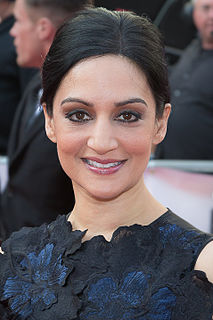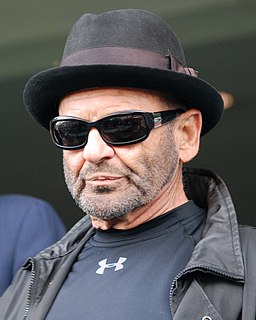A Quote by Melissa Febos
When I was a kid, I was told that I had a biological father, but that he didn't have much importance. I had an adoptive father who was present, who loved me, who was up to the task. And he was. So, I didn't question that story, until I was thirty-two, and suddenly realized that I was curious, that he did have something to do with me.
Related Quotes
'East of Eden' is an important story for me. It's about a kid that's misunderstood and feels like he's not loved by his father. It's a very father-son kind of story, and it's not until the end that they sort of make up. I like that because every boy has trouble with his father, so it's very relatable.
For the first time [with the Bible] - I know this sounds so corny - but I knew love. I had such an empty love tank. I had all the questions to life that didn't make sense. Two and two didn't add up to four. From my father's death - if you loved me, why did you leave me? Why did you kill yourself? And so when this happened, it took my life in a completely different direction.
When I was little I knew my father had been an orphan and had lived in an orphanage. I was curious, but my father wouldn't satisfy my curiosity. He told only one story about the orphanage, and that was of sneaking out and buying candy, which he sold to other orphans. He said he had a pretty good business going - till he was busted! I guess he told that anecdote because he was the hero of it and I suspect he was rarely the hero as a child, more often the victim. There's a photo of the actual orphanage on my website, and you can see it's a forbidding looking place.
There is that great proverb - that until the lions have their own historians, the history of the hunt will always glorify the hunter. That did not come to me until much later. Once I realized that, I had to be a writer. I had to be that historian. It's not one man's job. It's not one person's job. But it is something we have to do, so that the story of the hunt will also reflect the agony, the travail - the bravery, even, of the lions.
My father never once told me he loved me. I told him I loved him only one time - that was when he was sick. It was hard, the way he showed his love. I didn't understand what he was trying to teach me. Now I know, but it came too late for him to see it. After he was gone, I realized he was trying to strengthen my mind to make me better.

